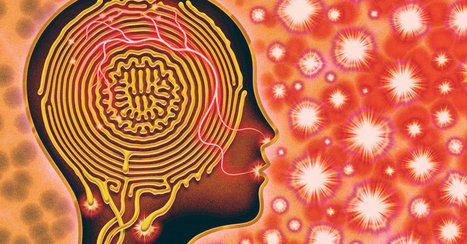For three months, Chelsea Alionar has struggled with fevers, headaches, dizziness and a brain fog so intense it feels like early dementia. She came down with the worst headache of her life on March 9, then lost her sense of taste and smell. She eventually tested positive for the coronavirus. But her symptoms have been stranger, and lasted longer, than most. “I tell the same stories repeatedly; I forget words I know,” she told me. Her fingers and toes have been numb, her vision blurry and her fatigue severe. The 37-year-old is a one of the more than 4,000 members of a Facebook support group for Covid survivors who have been ill for more than 80 days.
The more we learn about the coronavirus, the more we realize it’s not just a respiratory infection. The virus can ravage many of the body’s major organ systems, including the brain and central nervous system. Among patients hospitalized for Covid-19 in Wuhan, China, more than a third experienced nervous system symptoms, including seizures and impaired consciousness. Earlier this month, French researchers reported that 84 percent of Covid patients who had been admitted to the I.C.U. experienced neurological problems, and that 33 percent continued to act confused and disoriented when they were discharged.
According to Dr. Mady Hornig, a psychiatrist and epidemiologist at the Columbia University Mailman School of Public Health, the possibility that neurological issues “will persist and create disability, or difficulties, for individuals downstream is really looking more and more likely.” Infections have long been implicated in neurological diseases. Syphilis and H.I.V. can induce dementia. Zika is known to invade developing brains and limit their growth, while untreated Lyme disease can cause nerve pain, facial palsy and spinal cord inflammation. One man with SARS developed delirium that progressed into coma, and was found to have the virus in his brain tissue after his death.



 Your new post is loading...
Your new post is loading...








SARS isn't only a virus impacting the respiratory function, it also targets other vital systems and organs like the brain. Its effects are therefore varied, and must be explored in order to better understand them.